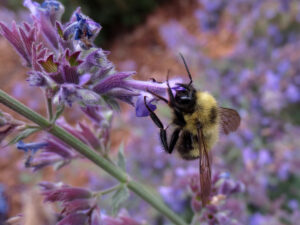Who is Rural Roots?
Rural Roots is a community of people who enjoy growing in a sustainable fashion. Our mission is to help you succeed at your farm, ranch or your urban space while making your land and your life better. We want to help you; whether you want to start a CSA, develop a value-added product or teach your kids about pollinator habitat. To reach more people we host a monthly Speaker’s Series and have been putting our presentations up on our YouTube channel. We are also involved with the Pollinator Summit and hosted the Fruit and Vegetable section of the Latah County Fair.

To help educate people we combine the best of grandma and grandpa’s growing practices with the latest in farming and ranching techniques. We mix a teaspoon of advice from Farmer’s Almanac with research from scientific journals to inform you of innovative techniques for growing to help advance sustainable farming. Our sources may be a 2020 research paper on blueberry epigenetics or an 89-year-old farmer who grows the biggest berries anyone has ever seen. We want you to be in the know about practices to boost your yields, techniques to reduce your work load, beautiful plants to lure in the bees, exercises to ease your anxiety, and how to use all of this knowledge to improve the health of your land, air and water.
Right now we have no staff but are a dedicated group of people who want the Rural Roots community to thrive.
Rural Roots: Over 20 years of working with and supporting small farmers who use sustainable practices.
Welcome to one of the oldest occupations. Humans have been shaping the earth’s landscape for over 12,000 years!

As a farmer you help control and shape your landscape everyday in many different ways. We want to help you learn to do so in a way that will make the land better for you, your children, and the generations to come.
Recent research by Ellis et al. (2021) shows that humans have been shaping over 3/4th of the earth’s landscape for the past 12,000 years. It is not our use of the earth that is causing our current ecological problems, but our current unsustainable practices.
Our ancestors transformed ecosystems in sustainable ways. By listening to and adapting agricultural practices used by Indigenous, traditional, and local people; we can often halt and reverse the damage done to our environment. If we look to the past, while considering the latest agricultural and environmental science, we can create a lasting legacy within our lifetime.
“Our global maps show that even 12,000 years ago, nearly three-quarters of terrestrial nature was inhabited, used, and shaped by people,” says Ellis. “Areas untouched by people were almost as rare 12,000 years ago as they are today.”
Click here to interact with study maps showing land use.
It is our responsibility to treat the land with respect. Acting as a good steward of the land results in larger healthier harvests as well as a better relationship with nature.
Be a good steward of the earth and leave your children a brighter future!
Reference:
Ellis EC, N Gauthier, KK Goldewijk, RB Bird, N Boivin, S Díaz, DQ Fuller, JL Gill, JO Kaplan, N Kingston, H Locke, CNH McMichael, D Ranco, TC Rick, MR Shaw, L Stephens, JC Svenning, JEM Watson. People have shaped most of terrestrial nature for at least 12,000 years. Proceedings of the National Academy of Sciences, 2021; 118 (17): e2023483118 DOI: 10.1073/pnas.2023483118 \n\n